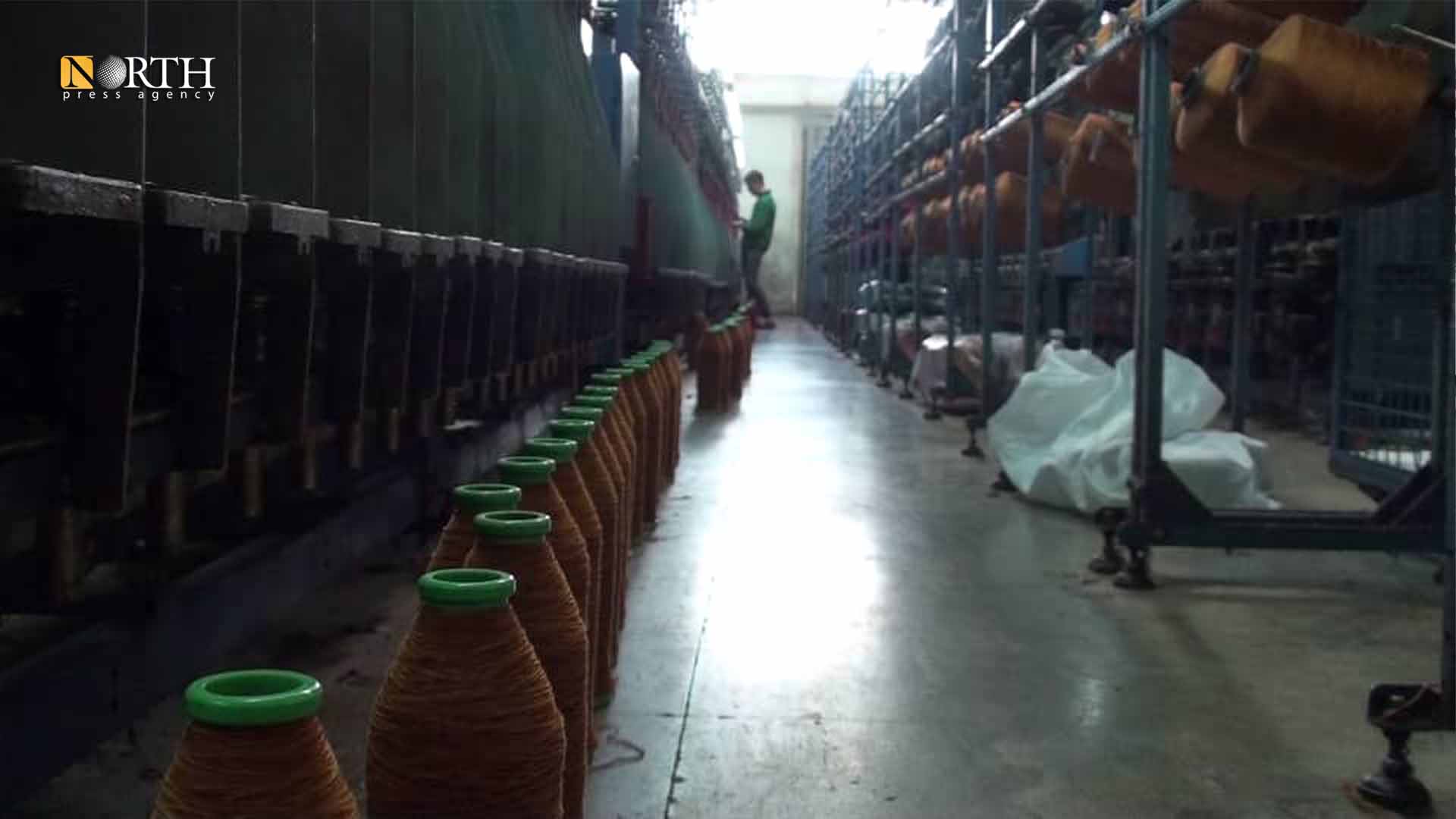ALEPPO, Syria (North Press) – Abdullqader al-Ajjan, an industrialist in Aleppo, northern Syria, is preparing his identification papers and documents with the intention of traveling to Egypt after he closed his workshop for the manufacture of ready-made garments in al-Layramoun industrial zone in the city.
Industrialists in Aleppo suffer from the low value of the local currency and the high prices of raw materials, in addition to what they call “obstacles the government places in the way of importing and exporting products,” which prompted many of them to close their facilities.
Al-Ajjan could not bear the high taxes recently imposed by the government on his workshop, which amounted to 50 million Syrian pounds annually, so he decided to close it, sell his equipment, and dismiss his workers.
His decision came after two years of working in difficult conditions and enduring strenuous efforts due to the high exchange rate of the dollar and the absence of basic industrial production requirements such as electricity and fuel.
“It became impossible to continue working in these conditions,” according to Al-Ajjan.
Increasing closure
Before the outbreak of the Syrian crisis, al-Layramoun neighborhood alone had about 200 industrial facilities, but the number of these facilities currently does not exceed 25, according to industrialists.
During 2020, the number of productive facilities in the Syrian industrial cities decreased by 16%, according to data of the Syrian government, though industrialists say that the percentage is much higher.
They say that this percentage is constantly rising under the current circumstances amid the absence of encouraging measures from the government for project owners, in addition to exorbitant taxes imposed by the government on the owners of establishments.
The closure of the facilities in Aleppo and other Syrian cities due to the war and the accompanying crises caused thousands of workers to lose their jobs.
Al-Ajjan said that he felt sorry for the more than 40 workers in his workshop who lost their income, “but I have no choice.”
Al-Ajjan would rather emigrate to Egypt to develop his business and achieve good gains than simply survive and bear the successive losses.
Taxes and fines
The Syrian government had formed a committee to investigate and assign taxes, comprising of members of the Aleppo Provincial Council and the municipality in addition to the Ministry of Finance in Aleppo, whose mission is to pursue tax evasion.
According to the statements of government officials, the reason behind these new measures is that many industrialists avoided paying taxes by publishing false data on production, exports, and profits.
However, industrial facility owners believe that the work of this committee will eliminate the existence of industry of Aleppo, and they liken its work to a death squad, in the words of the owner of an industrial facility in Aleppo.
Muhammad al-Mallah, owner of a yarn manufacturing facility in Sheikh Najjar industrial city, complains about the exorbitant taxes imposed by the committee on industrial projects in Aleppo.
He said that the committee is “firing a bullet at Aleppo industry.”
He added that the amounts imposed by the committee are based on its perceptions of the volume of work and the profits achieved by the facility, and not by tracking the reality of its work in these circumstances.
There are industrialists on whom sums of up to three billion Syrian pounds have been imposed on the pretext of the absence of a certificate of origin for imported raw materials, according to al-Mallah.
He stated that every factory was visited by the committee, and huge and unprecedented sums of money were imposed on them. “A tax of a billion SYP was imposed on my facilities.”
Al-Mallah calls the taxes and fines imposed by the committee as royalties, which he considers unfair to industrialists who want their city to remain the country’s economic capital. “Yes, the committees do not collect taxes and do not apply the law, but rather impose royalties.”
Facilities in Egypt
Egypt has become the preferred destination for Aleppo’s industrialists due to the large and encouraging facilities provided by the Egyptian government to attract investors.
In contrast to the difficulties facing the industrialists in Aleppo, the Egyptian government offers investors a lot of facilities, starting with reducing visa fees from $3,000 USD to $900.
In Egypt, an investor can also obtain land to build his facility, can acquire loans from the bank if additional assets are needed, and can enjoy facilitated imports and exports.
Ziyad al-Qadi, owner of a factory for the manufacture of aluminum for home furniture in the Kalasa neighborhood of Aleppo, believes that Aleppo’s industry is dying due to government negligence.
Migration to Egypt is not limited to factory owners and traders; it is available even to workers who have special professional experience in textiles.
Al-Qadi said “Unfortunately, all of this is happening and our government has not found solutions to this migration, which, if it continues, will destroy Aleppo as the industrial capital of Syria.”
However, what concerns the government from Aleppo’s industry now is to make money without providing any facilities or production requirements that might improve industrial movement, according to al-Qadi.

